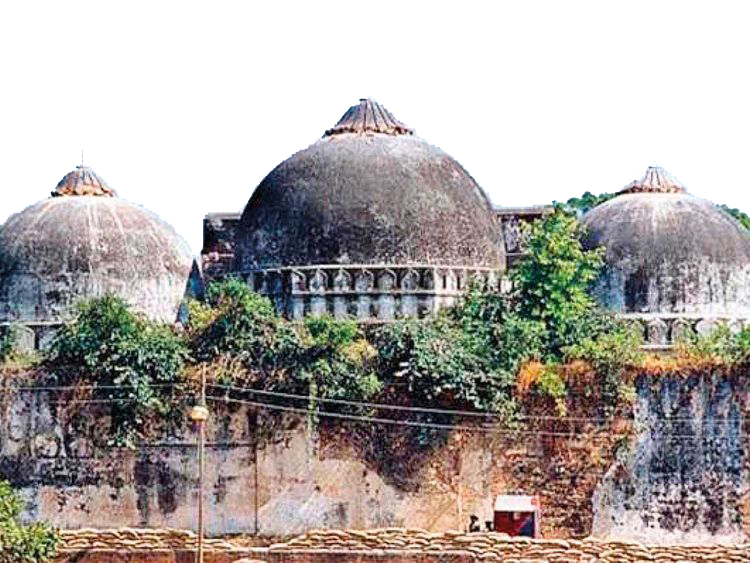Chief Justice of India Ranjan Gogoi, who heads a five-judge Constitution bench, is expected to deliver the much-awaited verdict in the Ram Janmabhoomi-Babri Masjid title dispute case by November 17. The apex court has also considered a plea challenging the Allahabad High Court judgment that divided the disputed land among stake-holders Nirmohi Akhara, Ram Lalla and the Sunni Waqf Board. An OP presentation of public opinion on a matter of “belief, faith and worship” as enshrined in the Constitution:
ASI has unearthed evidence that there was temple: RSS
We expect, the apex court will not modify the judgment delivered by the Allahabad High Court. As far as the title suit is concerned, if the Allahabad High Court’s judgement says that the disputed site is the birthplace of Ram, then we see no reason why it should be divided among parties.
The land should be given to the Hindus who may build a Ram Temple there. The Archaeological Survey of India (ASI) which has unearthed some evidence to justify that there was a temple and not a mosque at the spot. So the evidence corroborates the existence of a temple. We are hopeful that the decision will go in our favour.
Otherwise, we will decide the next course of action after the verdict is delivered. There is the Supreme Court and then there’s the Parliament as well. But, we have full faith in the court that it will deliver justice to us. It’s a bench headed by the Chief Justice of India which also comprises eminent constitutional experts. Truth and justice must uphold the faith and belief of the people in the democratic institutions.
–Rabi Narayan Panda, RSS functionary
Law doesn’t go by faith, says OMDC
The dispute over Babri title deed has assumed political significance and it is no longer seen as a true title suit. The parties to the dispute who are unable to substantiate their claim through documentary evidence are saying that it is a matter of faith. But law doesn’t go by faith.
Law requires documentary evidence. Judges will keep in mind the implications of the verdict on the religious communities. There are around 17-19 shrines in Ayodhya which are being claimed to be Ram temples. Certain sections of the Muslim community are on the edge for being in the minority and the consequences of 1992 riots are still fresh in their mind.
Interestingly, a sitting judge is reported to have asked an activist in the courtroom why he has Leo Tolstoy’s novel ‘War and Peace’ in his hand. And it is hard to predict what kind of judge may deliver. A majority of all television channels, which is accused of taking the side of the government, is apparently peddling the communal agenda when it comes to the Ayodhya case. It is difficult to expect justice under such circumstances. If you consider the title case and evidence, keeping the faith angle aside, I think the Sunni Waqf Board may emerge a winner.
All other parties don’t have documentary evidence. It all depends on how the political parties will take the verdict. Politicisation of issue makes people emotionally involved with it. Even if the decision goes against the Waqf Board, we will respect it. If the Waqf Board decides to challenge the verdict, it will do so constitutionally. We hope, it resolves the matter peacefully.
–Syed Barkad Ali Tanwir, Coordinator of Odisha Muslim Development Council
